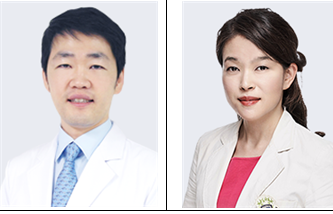A research team at St. Mary's Hospital has discovered a biomarker that can predict the severity and recovery of dysphagia, or swalling difficulties, after a stroke.

Dysphagia is a major cause of bacterial aspiration pneumonia as well as malnutrition and dehydration, affecting the overall recovery of stroke patients and may increase mortality. Dysphagia is known to occur in about 50 percent of stroke patients.
With existing research focused on identifying the site of brain damage that causes dysphagia after stroke, there was a limitation to quantitatively evaluating the degree of brain damage.
The team, led by Professors Kim Young-gook at Yeouido St. Mary's Hospital and Im Sun at Bucheon St. Mary's Hospital, conducted a prospective study to find out the relationship between the cortical medulla tract, the severity of dysphagia, and the possibility of recovery in stroke patients within two weeks of onset.
The research team obtained diffusion tensor imaging with cranial nerve fibers within two weeks of the onset of stroke patients who visited Bucheon St. Mary's Hospital from March 2017 to February 2018, and quantitatively evaluated the swallowing function through a swallow test.
According to the test results, the team divided the patients into three groups – a group with dysphagia after stroke (27 people), a group without dysphagia after stroke (24 people), and a control group (18 normal people).
As a result, the team found that the dysphagia group had more damage to the affected cortex than the group without dysphagia.
The team also found that the microstructure integrity of the unaffected cortical medulla oblongata in the dysphagia group was a biomarker that could predict up to 63.1 percent of the recovery of swallowing function after three months of onset.
"Although it is difficult to confirm the cortical tract in general magnetic resonance imaging, it has clinical significance in that it presented a method to visualize and quantitatively measure the degree of damage through 3D reconstruction," Professor Kim said. "In the future, it may be used to determine the effectiveness of various treatment techniques for dysphagia."
Neuroimage:Clinical published the result of the study in its June edition.

